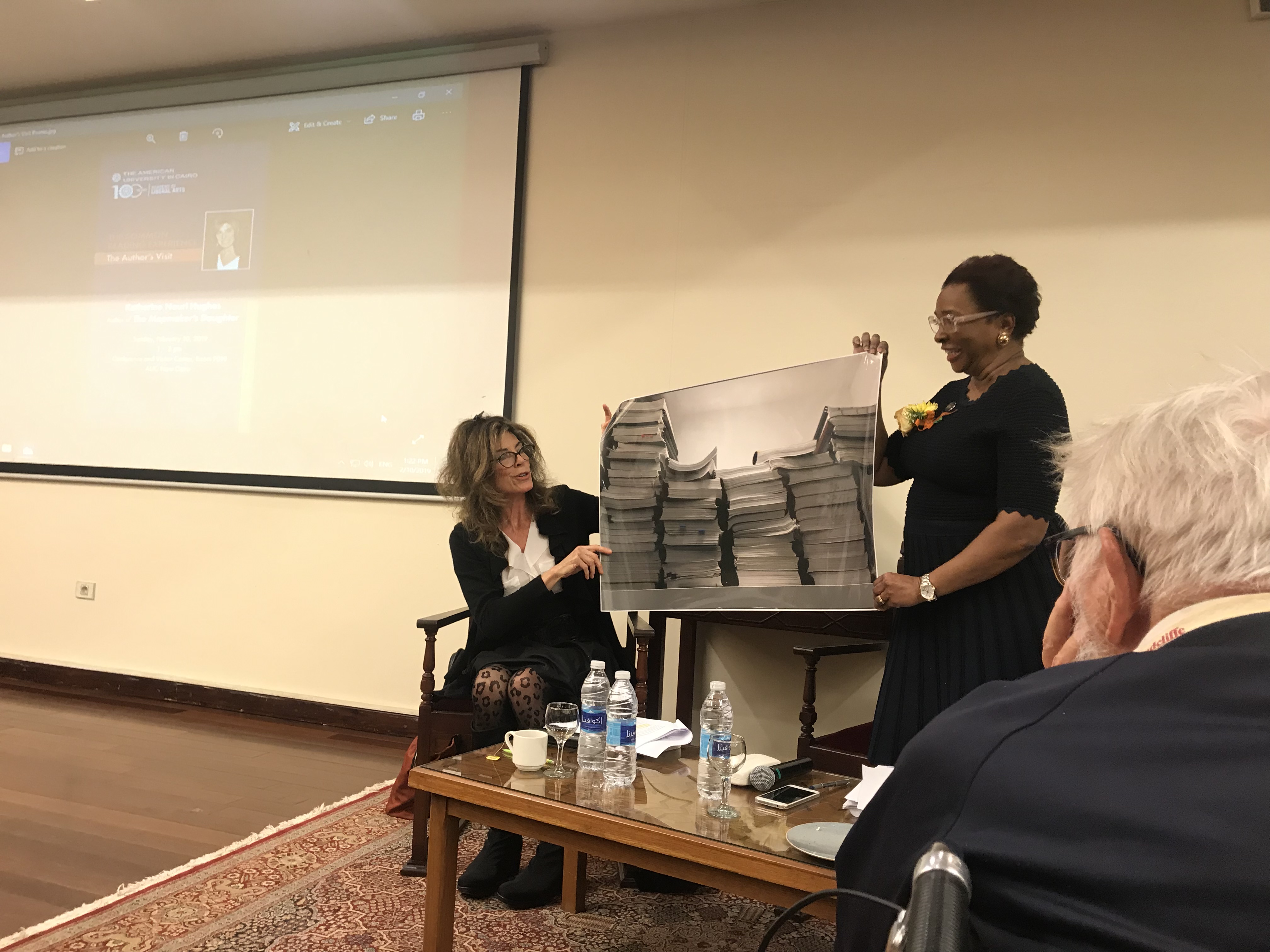Rejection Can Lead to Success, Says Author
By: Eman Kharoshah
@emannmagdyk
In its sixth year, the Common Reading Experience Program invited author and AUC Board of Trustees member Katherine Nouri Hughes to talk about her long journey from rejected manuscript to literary success.
It took Hughes 20 years of research, drafts, effort and rejection before her historical work of fiction Mapmaker’s Daughter was published.
The theme of the novel is based on the “sickbed” confessions of Nurbanu (nee Cecilia Baffo Veniero, a Venetian) who rose to become the most powerful woman in the Ottoman Empire in the 16th Century, when she married Sultan Selim I and became the Queen Mother to his son and successor Murad III.
At its core, the novel revolves around the bond of trust between 12-year-old Nurbanu and Sultan Suleiman the Magnificent, Selim’s father.
The idea for the book was suggested by the late famed historian Bernard Lewis who told her about Nurbanu.
However, there was almost no historical documentation or records about this powerful woman in the Ottoman sultanate.
It took Hughes 20 months of research and writing to put together a first draft, which was rejected.
She focused on more research and writing but subsequent drafts were also rejected.
Hughes shared this story as she showed the audience a large picture of her closet with piles of papers and rejected drafts.
She explained that it was disappointing and painful to the point that she was not able to bear the weight of failure anymore.
However, when the book was published in 2017, it vindicated her resilience and persistence.
“It could have been a different book if it was not turned down,” Hughes told The Caravan.
She added that all these rejections were for a reason, and step by step, when she followed the publishers’ instructions, it led to a better final product.
In addition to all the negative feedback and rejections, Hughes said that she found the greatest feedback to be within herself and her own experience.
She explained that each day helped her learn more and gave her a better perspective of what she can overcome.
From her tough, yet fruitful life experience, Hughes gave advice to young writers, stressing on the importance of imagination.
She explained that young writers have a special kind of energy because of how close they are to their childhood. In turn, this grants them closer access to their imagination.
Imagination, she explained, is not something people strive for but rather something which people already possess and can learn to unlock.
“It is very important to notice everything around you, because those are the keys to your imagination,” Hughes added.
In addition, since procrastination hinders young writers from the writing process, Hughes suggested that they could pretend that they are writing a letter to somebody who knows them well.
In that sense, she says, they can write when they feel the need to say something. This might also help them in writing effectively while using their imagination.
In the 18 months since its publication, The Mapmaker’s Daughter has won accolades in The New Yorker magazine as well as among a number of historians and authors.
Doris Jones, a senior instructor in the Department of Rhetoric and Composition and the director of the Common Reading Experience, said having Hughes as the first author in the program illustrated the importance of having “a mentor who encourages you, and to never lose sight of your ideas”.
“She [Hughes] remained true to herself and was able to take advantage of the comments that were made on [her] work,” Jones told The Caravan.
Jones also explained that the program aims to shed light on books that might interest students in an attempt to encourage reading
“Reading is an opportunity for an individual not only [to] learn about himself, but to step outside himself for a moment and learn about places, people and things that maybe they would’ve never explored before,” Jones said.
“Reading is an integral part of a university education,” she added.




